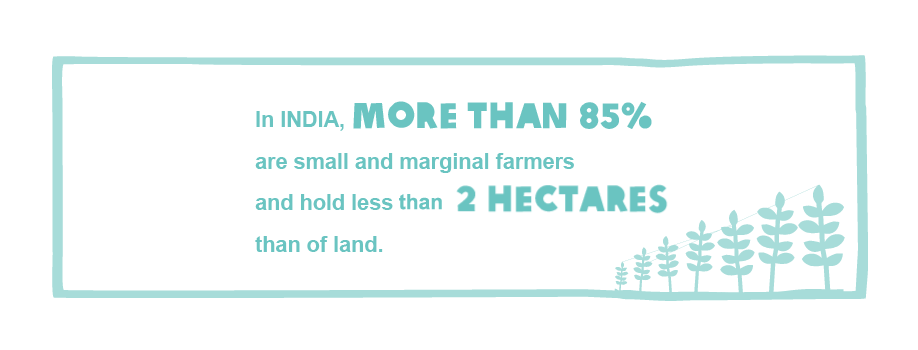ECONOMIC JUSTICE
Equal Right to a Secure and Sustainable Livelihood

Right to sustainable livelihoods in rural India hinges on sustainable management and governance of agriculture and natural resources as two-thirds of Indians live on farming, fisheries and forests.

Small Holder Agriculture
60% of India's agriculture is rain-fed. Additionally, the small holders face challenges like imperfect input market, lack of access to credit and technical know- how, unscientific cultivation practices, poor access to cold storage and warehouses for product storage, in addition to the poor land quality, water management and soil erosion.
OUR EFFORTS TO EVEN IT UP
Women play a vital role in food production and preparation with a wealth of
knowledge about seeds, crops, water and land management. However, women
in agriculture are still awaiting an equal status on land and access to agricultural
resources or the produce from the fields they sow.
OUR EFFORTS TO EVEN IT UP
Natural Resource Management
The Richest or the Poorest?

Jharkhand, Odisha and Chhattisgarh are the most abundant
regions in coal, iron ore, bauxite and chromite, accounting to 80% to 90% share, But they
are also home to the poorest in the country


Food & Climate Justice
Right To Food

Hunger is one of the primary challenges India is facing today. Unsustainable ways of consumption and production are moving us on a collision course with our planet's ecological limits. The warning signs are clear, we have entered the age of crisis; of spikes in food prices and hikes in oil prices; of scrambles of land and water; of creeping insidious climate change.

The Oxfam India GROW campaign builds upon an exciting and ambitious worldwide campaign where everyone has enough to eat, always. The campaign has a simple message 'Another Future Is Possible' and it promotes growth for all. It looks for shared solutions for a better future.

Seema has been farming for ages. Today she gets to be called a farmer.
Seema Devi belongs to the Mushar caste under the Mahadalit community in Bihar.
Apart from being poor, the Mushars had to endure extreme discrimination in the society.
Seema worked as a small farmer and wage labourer but owing to social bias, remained
landless. On top of that, the government and the society, denied her the status of a
‘farmer’.
Oxfam India mediated and encouraged Seema to lead Mahila Kisan Samiti and start collective
farming by taking land on lease. The group of women who joined Seema received guidance
and training support by ATMA (Agricultural Technology Management Agency). Needless to say,
Seema's efforts paid off and she has not only been given the status of a ‘farmer’ but also
enjoys the benifits of agriculture and other social security schemes.


































